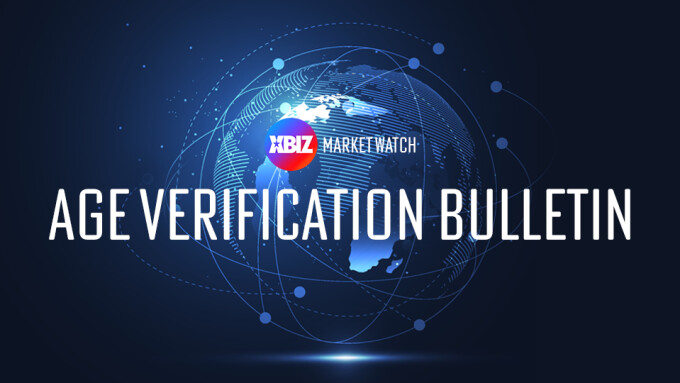Industry stakeholders and free speech advocates have anxiously been awaiting the Supreme Court’s decision in Free Speech Coalition v. Paxton, which could significantly impact state age verification laws around the country. In the meantime, state legislatures continue to weigh and pass AV bills, AV tech providers continue to tout their services, and legal challenges continue to play out in the courts — with some cases on hold pending the SCOTUS ruling in Paxton.
This roundup provides an update on the latest news and developments on the age verification front as it impacts the adult industry.
Since the current wave of age verification bills began with Louisiana’s trend-setting 2022 law, most subsequent AV bills that have made their way through state legislatures have been identical or nearly identical to that law, and to each other. As legal challenges and media scrutiny have shed light on issues such as ineffectiveness and vagueness of language, however, some of the more recently proposed AV bills have begun to include “patches” seemingly intended to fill gaps or address critics’ objections.
Defining ‘Covered Platform’ in AV Legislation
The original Louisiana model defined “covered platforms” — those required to implement age verification — as sites in which a “substantial portion” of overall content is considered harmful to minors. It further defined “substantial portion” as meaning more than 33.3% of “total material” on a site.
As XBIZ reported, that 33.3% figure was essentially arbitrary, but still became the standard in the many copycat AV bills that followed, and has appeared consistently in AV bills around the country.
It has also raised questions about what metrics would actually be used to determine that material harmful to minors constitutes one-third of a website’s contents, since the provisions could be interpreted to refer to anything from number of videos to file size or content hours.
In response to those questions, some bills have begun to substitute a new standard, defining covered platforms as sites for which it is in “the regular course of the website’s trade or business” to create, host, or make available material that is harmful to minors. That provision made it into the South Dakota AV law recently signed into law by that state’s governor.
Naturally, “the regular course of the website’s trade or business” is also highly open to interpretation. As a result, a proposed AV bill now making its way through the Iowa state legislature, which also uses the “regular course of business” standard, further specifies that when determining whether that standard applies, courts must consider the amount of data, user traffic and revenue connected to “obscene” material, in proportion to the total amount of data, user traffic and revenue generated on the site.
As XBIZ reported in the March 20 Age Verification Bulletin, the Iowa bill and a recent Wyoming law are also examples of state legislators using the term “obscene material” interchangeably with the more standard “material harmful to minors.” This reflects confusion over the difference between obscenity and legal pornography, and could even ultimately prevent them from applying to the adult sites at which they are aimed, though Free Speech Coalition has warned sites against making any such assumption.
Cracking Down on VPNs
One of the most common criticisms of state AV bills is that they are not only unconstitutional, but are also likely to be ineffective. A frequently cited issue is that since state AV bills only apply to users in a particular state, users can easily use virtual private networks to avoid being singled out for age verification.
Some states are now making an effort to address this workaround. Wisconsin is weighing a bill that would require adult sites to block VPN traffic, and a bill just introduced in Colorado specifies that covered platforms may not rely solely upon the geographical registration of an IP address to determine a user's location, but must apply “extensive due diligence based on available technology” before concluding that an individual is not located in Colorado. Similarly, Ohio’s HB 84 requires a geolocation check “to dynamically monitor the person attempting to access” adult content.
Other Updates
In North Dakota, a bill that originally proposed device-based age verification, but was later amended to resemble standard model site-based AV bills, has been upstaged by a very similar bill, which was passed unanimously by the state House this week and is reportedly on its way to the governor's desk.
In New Mexico, an AV bill that provoked an unusual degree of skepticism, compared with the reception received by AV bills in many other state legislatures, has died in committee now that the legislative term has concluded.
Numerous other bills, introduced earlier in the legislative session, continue to wind their way through committee hearings and floor readings in Minnesota, New York, Tennessee, Florida and other states. Free Speech Coalition maintains and updates a list of pending AV legislation here.







